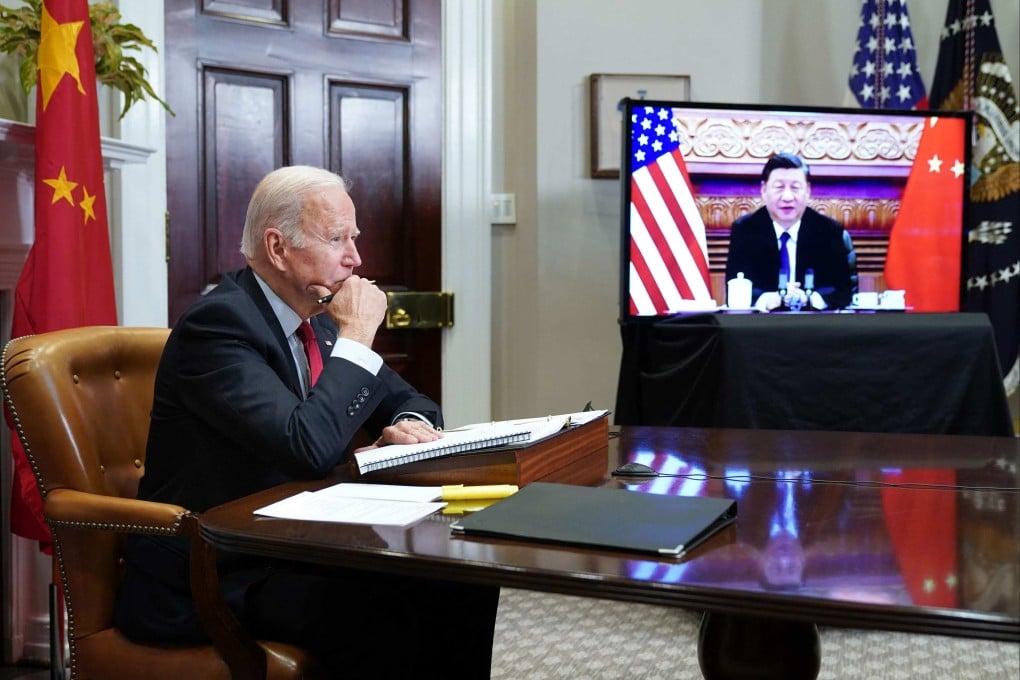China should give up ‘illusion’ of avoiding US rivalry, Beijing think tank says
- Ukraine war fallout has heightened risks of all out US-China military confrontation, Renmin University think tank warns
- China should prepare for the worst, but seek bilateral cooperation to avoid it, institute urges in recent report

The Chongyang Institute for Finance Studies at Renmin University said the war in Ukraine had intensified US worries about and strategy against China, heightening the risk of an “all out” confrontation between the two major powers.
However, while adapting to the spike in bilateral tensions, China should also take the initiative to shape ties with the US and seek “the possibility of cooperation between the two nations”, the report urged.
It noted that the US had stepped up its strategy to “contain China” following Russia’s invasion of Ukraine in late February, moving to strengthen ties with regional allies and selling arms to Taiwan, which Beijing regards as a breakaway province that can be taken by force.
“The conflict between Russia and Ukraine has exacerbated the strategic anxiety of the United States towards China. The United States has begun to accelerate the build-up of comprehensive strategic competition with China,” it pointed out.
